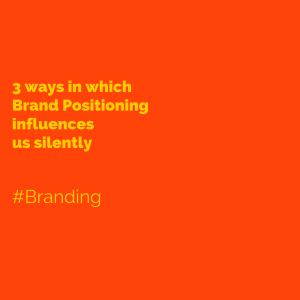 I’ve usually been averse to buying premium branded apparel. For the simple reason that I could always find equally good clothing which isn’t necessarily a Lacoste or a Tommy, and which is as elegant and durable as that venerable brand.
I’ve usually been averse to buying premium branded apparel. For the simple reason that I could always find equally good clothing which isn’t necessarily a Lacoste or a Tommy, and which is as elegant and durable as that venerable brand.
Garments is a very competitive industry. You are spoilt for choice and there are more brands to choose from for every category than the number of hours in a day. Which is probably the reason you can get a good deal if you shop around enough. In a market where product differentiation is reduced to sticking a label on the shirt, it becomes very easy to ignore the pull of a brand and look for value instead.
#1 Discoverability
My bias towards ignoring a brand took a hit when I went shopping for a set of tyres. Now this is an industry with less than 10 brands. And they are not bought based on the label stuck on them. It was difficult to believe that the Continental, Bridgestone and Yokohoma brands (I left out Michelin on purpose), were slowly but surely getting an edge in the replacement market over time tested Indian brands. The first battle they’ve won over others, is the sheer reach. They are present overwhelmingly in front of you, wherever you go. Most purchase decisions are made by engaging with brands that are easily discoverable. It is only a handful of customers that does serious market research in the quest of finding every product they can lay their hands on before choosing amongst them.
#2 Value proposition (what can I do for you)
What each brand told me was a story. Continental said its new technology, Bridgestone said wide acceptance / long term player, and Yokohoma claimed high performance. In this milieu, I could barely hear what Apollo / MRF / Ceat were trying to say. I came away with the distinct impression that they have confined themselves to being manufacturers of OEM supplies and Truck tyres! Both of these segments do not require them to position their brand to the consumer.
I made my choice, and it was on the basis of brand positioning. No prizes for guessing which way I leaned.
#3 Believability
It’s easy to promise the moon and every seller would like to believe their brand is God. In the courtroom of the consumer however, decisions are swift and ex-party. Which means, you do not get a second chance to be heard. This is where believability or trustworthiness comes in. In my case, it was the dealer who swore by the product I bought. Do we convey trust either directly or through media or through our sales touchpoints? If not, then you are seriously under exploiting your brand’s potential.
Indian Software
This is precisely the problem that plagues software from India. To this day, we are immersed into selling our products by feature and rarely take an emotional position in the consumer’s mind. A brand connects with the buyer at an emotional level. If we want to be world class, saying how good we are will not help. How we can transform the life of the buyer, is what matters. And that is where branding and positioning comes in.
Emportant HR Software
I then thought about what we stand for as a brand. Emportant has a deeply committed team, founders with deep roots in product software and the HR software industry and yes, we’re also new-age and high-tech. So what do we stand for? Our effort will be do bring forth our Brand value to you in the coming months. Brand should also be a truthful reflection of the company ethos. We’d like to be perceived as trustworthy, caring and progressive. We’d like to be quoted as being versatile and easy to adopt. You can help us in this journey. Just write back and tell us what you think about Emportant and be part of shaping our story (click here to share comments). Because we believe that in our story, the best is yet to be told.

